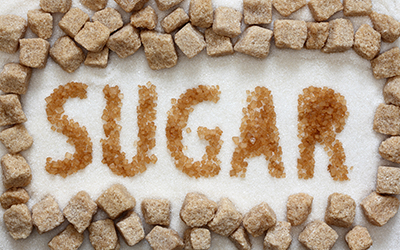Posted on Nov 24, 2025
File ID 45080377 | © Stepan Popov | Dreamstime.com


Sugar is one of the biggest culprits behind tooth decay and other oral health issues in children. While most parents understand that sugary snacks and drinks can harm teeth, the real effects of sugar on developing smiles are often underestimated. A trusted children’s dentist explains that even small amounts of sugar, when consumed frequently, can create an ideal environment for bacteria that cause cavities to thrive. Understanding how sugar affects your child’s teeth—and what you can do about it—is the first step in protecting their smile for years to come.
Every time your child eats or drinks something sugary, harmful bacteria in the mouth feed on that sugar and produce acid. This acid attacks the enamel, the protective outer layer of teeth, leading to the first stage of tooth decay. When this happens repeatedly throughout the day—especially without proper brushing and flossing—the enamel weakens and cavities begin to form.
A professional in dental pediatrics emphasizes that baby teeth are more vulnerable to decay because their enamel is thinner than that of adult teeth. This means sugar exposure can cause damage more quickly and severely. According to the Centers for Disease Control and Prevention (CDC), about 52% of children aged 6 to 8 have had a cavity in their primary teeth (CDC, 2023).
Parents often assume sugar only comes from candy or desserts, but many everyday foods contain hidden sugars that can harm children’s teeth. Some surprising sources include:
A Frederick dentist may recommend reading nutrition labels carefully and limiting the frequency of sugary snacks rather than just focusing on total sugar intake. The longer sugar stays on the teeth, the greater the risk for decay.
Preventing cavities isn’t just about cutting out sugar—it’s about developing consistent oral hygiene routines and habits. Experts in pediatric dentistry recommend:
Introducing these habits early helps children associate dental care with positive, everyday routines rather than anxiety-inducing appointments.
A Frederick dentist specializing in dental pediatrics can provide preventive treatments that protect against sugar-related damage. These may include fluoride treatments, dental sealants, and professional teeth cleanings designed specifically for young patients. Fluoride strengthens enamel, making it more resistant to acid attacks, while sealants act as a barrier against bacteria in hard-to-reach areas.
Regular visits also allow your dentist to monitor growth, alignment, and any early signs of decay. A proactive approach helps ensure that minor issues don’t turn into major dental problems later on.
Educating children about how sugar affects their teeth helps them take ownership of their oral health. Simple demonstrations—like showing how soda can erode a hard-boiled egg's shell—can make a lasting impression. Encouraging kids to make healthier snack choices and rewarding them for consistent brushing can reinforce lifelong dental habits.
Parents can also partner with their children’s dentist to create a customized care plan based on their child’s needs, diet, and dental development.
While sugar is almost impossible to avoid completely, moderation and mindful choices go a long way in protecting your child’s smile. With guidance from an experienced Frederick dentist, regular dental pediatrics visits, and strong daily hygiene habits, children can enjoy sweet treats occasionally—without suffering the bitter consequences of tooth decay.
By making small, consistent changes and staying proactive about dental care, parents can ensure their kids grow up with healthy, confident smiles that last a lifetime.
Sources:
Centers for Disease Control and Prevention. (2023). Children’s Oral Health. Retrieved from https://www.cdc.gov/oralhealth/fast-facts/childrens-oral-health/index.html